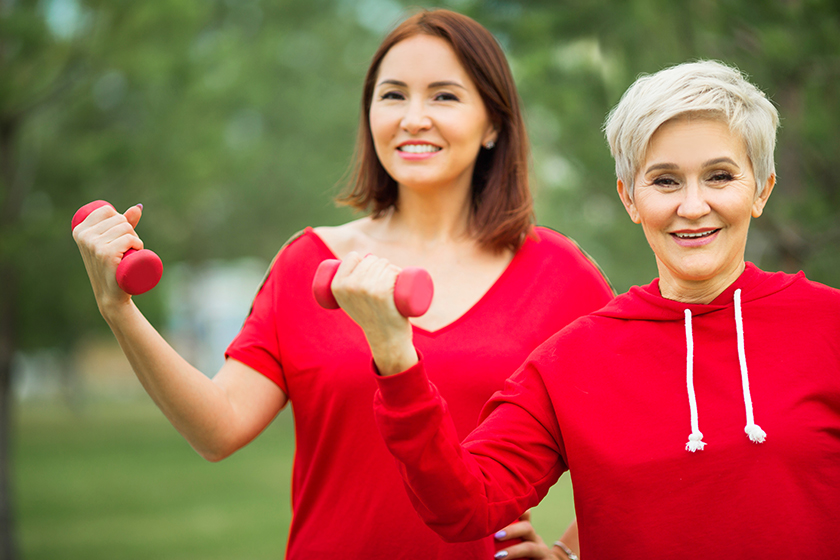As we grow older, certain bodily functions tend to slow down, including the circulation of blood. Insufficient blood circulation can give rise to various health problems in older individuals, such as cold hands and feet, muscle cramps, dizziness, and delayed wound healing. However, there are several effective methods to enhance blood circulation in elderly individuals, promoting their overall well-being. In this article, we will explore six key approaches to fostering better blood circulation in elderly individuals. By adopting these techniques, elderly individuals can experience increased vitality and an improved quality of life.
Engage in Regular Physical Activity
Regular physical activity is vital for maintaining healthy blood circulation in elderly individuals. Exercise helps stimulate blood flow, strengthen the heart, and enhance cardiovascular health. The elderly should aim for at least 30 minutes of moderate-intensity exercise on most days of the week. Activities such as walking, swimming, cycling, and yoga are excellent options for elderly individuals to improve blood circulation without exerting excessive strain on their bodies. Prior to starting any exercise program, it is important to consult with a healthcare professional to ensure safety and suitability.
Follow a Balanced Diet
A well-balanced diet plays a significant role in promoting optimal blood circulation in elderly individuals. Including foods that are rich in essential nutrients can help support cardiovascular health. Foods like oranges, berries, leafy greens, nuts, seeds, and fatty fish are particularly beneficial for blood circulation due to their high content of vitamins, antioxidants, and omega-3 fatty acids. To maintain good circulation, it is important to limit the consumption of processed foods, saturated fats, and added sugars, as they can have a negative impact.
Stay Hydrated
Proper hydration is vital for maintaining healthy blood circulation. The elderly should aim to drink an adequate amount of water throughout the day to prevent dehydration, which can cause blood vessels to constrict and impede circulation. Generally, it is recommended for elderly individuals to consume around 8 cups (64 ounces) of water daily, although individual requirements may vary depending on factors such as climate and physical activity levels. Encouraging elderly individuals to carry a water bottle with them and setting reminders to drink water regularly can be helpful.
Quit Smoking and Limit Alcohol Consumption
Smoking and excessive alcohol consumption can significantly impair blood circulation. Smoking narrows blood vessels, reduces oxygen levels, and increases the risk of developing cardiovascular diseases. Similarly, excessive alcohol intake can lead to high blood pressure and damage blood vessels, negatively affecting circulation. The elderly should be encouraged to quit smoking and limit alcohol consumption to improve blood flow and overall health. Seeking guidance from healthcare professionals and joining support groups can provide valuable assistance in quitting smoking and reducing alcohol intake.
Maintain a Healthy Weight
Maintaining a healthy weight is crucial for elderly individuals to improve blood circulation. Excess weight places additional strain on the heart and blood vessels, leading to poor circulation. The elderly should aim to achieve and maintain a weight that is appropriate for their age, height, and body type. Engaging in regular physical activity and following a balanced diet can assist elderly individuals in reaching their weight management goals. It is advisable to consult with healthcare professionals or registered dietitians for personalized guidance and support.
Choose a Healthy Senior Lifestyle
Enhancing blood circulation in elderly individuals is crucial for maintaining overall health. By implementing these six strategies, including regular physical activity, a balanced diet, proper hydration, quitting smoking, limiting alcohol consumption, maintaining a healthy weight, and practicing stress management techniques, elderly individuals can improve blood circulation for a higher quality of life. Encourage elderly individuals to consult with healthcare professionals for personalized advice and support in implementing these strategies.






